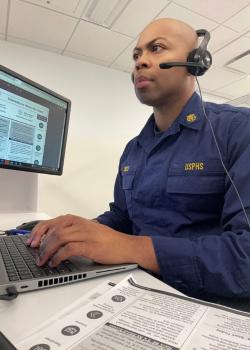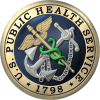-
- About ASB Main Page
- Deployment Travel and Travel Readiness
- Frequently Asked Questions
- Government Travel Charge Card
- Household Goods Officers
- Important Regulation Changes
- Junior COSTEP Travel Information
- Links
- Official Travel Forms
- Permanent Change of Station (PCS)
- Servicemembers Civil Relief Act (SCRA)
- Table of Frequently Used Acronyms
- Temporary Duty Assignments (TDY)
- Transportation
- Travel and Transportation
- Travel and Transportation Allowances FAQ
- Travel and Transportation Entitlements Summary
- Travel, PCS and Transportation
- Important Regulation Changes
- Travel & Transportation Entitlements Summary
- Permanent Change of Station (PCS)
- Temporary Duty (TDY)
- Junior COSTEP Travel Information
- Official Travel Forms
- Household Goods Officers
- Transportation
- Government Travel Charge Card
- Table of Frequently Used Acronyms
- Servicemembers Civil Relief Act
- Links
- Travel and Transportation Allowances FAQ
- Personnel & Career Management
- Licenses and Transcripts
- Licensure Overview and FAQs
- Transcripts FAQs
- Leave
- eCORPS Information
- Officer Leave and Absence Request FAQ
- Practice Hours
- Practice Hours FAQs
- Practice Hours User Guide
- Practice Hours Opportunities
- Long Term Training
- Extramural and Intramural Training FAQs
- Training Forms
- About Policy
- Commissioned Corps Issuance System
- Commissioned Corps Legislative Liaison Program (CCLLP)
- Equal Opportunity
- Frequently Asked Questions
- Political Restrictions
- Promotion Ceremony Protocol (PDF, 126kb)
- SGHG Drill and Ceremonies Manual (PDF, 3.39mb)
- Uniform Specifications
- PHS Hard Shoulder Boards and Sleeve Insignia (Male and Female) (PDF, 828kb)
- PHS Soft Shoulder Marks (Unisex) (PDF, 324kb)
- Physical Training Uniform (PTU)
- Deployment Information
- Deployment Handbook
- Operations and Deployment
- On-Call Schedule
- Deployment Awards
- Other Resources
- About the Training Branch
- Training Dates
- Career Pathways
- Webinars
- Career Development Trainings
- Officer Basic Course (OBC)
- Officer Intermediate Course (OIC)
- Preparedness Trainings
- Military Facility Annual Training (MFAT)
- Partner Trainings
- Army War College (AWC)
- Interagency Institute for Federal Health Care Executes (IAI)
- Capstone Leadership, Education, Analysis, Development, Sustainment (LEADS)/Joint Medical Executive Skills Institute (JMESI) Course
- Command and General Staff Officer Course (CGSOC)
- Defense Advanced Research Project Agency (DARPA)
- Joint Medical Executive Skills Institute (JMESI) Intermediate Executive Skills (IES)
- Office of National Drug Control (ONDCP)
The USPHS Commissioned Corps is committed to our mission to protect, promote, and advance the health and safety of the nation. Public Health Service officers are trained and equipped to provide crucial public health leadership, assist with policy development, advance innovation and science, provide essential care services and respond to national and global public health emergencies. Through our Active Duty Regular Corps, our Public Health Response Strike Team (PHERST) and our Ready Reserve Corps, we remain responsive and available to rapidly deploy in the service of health.
-
Officer Spotlight
LCDR Israel Cross
 “As a Public Health Service officer, how I serve matters just as much as the skills I use to promote public health. I want people to see the values we represent: Leadership, Service, Integrity, and Excellence.”
“As a Public Health Service officer, how I serve matters just as much as the skills I use to promote public health. I want people to see the values we represent: Leadership, Service, Integrity, and Excellence.” LCDR Israel Cross is a gerontologist with 16 years of federal government experience. As a project officer on the Health Information Technology (IT) team at the Health Services & Resources Administration (HRSA), LCDR Cross supports Health Care Center Control Networks (HCCNs). HCCNs strengthen and leverage health IT to improve health centers’ operational and clinical practices resulting in better health outcomes.
Prior to HRSA, LCDR Cross worked at the Centers for Medicare & Medicaid Services (CMS) as a civilian for three years in the Division of Nursing Homes, assessing and improving care for Medicare beneficiaries. While at CMS, he learned about the U.S. Public Health Service (USPHS) Commissioned Corps through friendships with Public Health Service officers at the agency. Already being in public service, the prospect of becoming a uniformed public servant with the ability to deploy during public health crises while continuing to be impactful at CMS led LCDR Cross to apply. Upon commissioning as a scientist in 2013, he became a program evaluator to assess hospital performance to reduce hospital harms and readmissions and increase transparency in health care for consumers through the oversight of patient experiences of care surveys.
True to what his colleagues told him prior to his joining USPHS Commissioned Corps, experiences in the field drew LCDR Cross closer to the USPHS mission and the people it serves. LCDR Cross deployed to an Indian Health Services hospital serving the Ho-Chunk Tribe as a quality improvement officer. He helped the hospital prioritize and revise problem-prone quality indicators and ensure plans of correction were in place to safeguard patient safety. Interacting with other quality professionals on the reservation, many of whom were of the Ho-Chunk tribe, familiarized him with the importance of cultural competence in providing health care.
The COVID-19 pandemic remains a sentinel event demonstrating the widespread impact of the USPHS Commissioned Corps. Ambulatory care facilities faced many challenges during the initial surge of the COVID-19 pandemic. Needing to transition from in-person medical visits, providers cited numerous barriers to telemedicine implementation, including lack of training, mentorship, and curated resources. To address these critical needs, LCDR Cross deployed for several months as the peer-to-peer engagement lead of “HHS Telemedicine Hack,” a 10-week, virtual peer-to-peer learning community conceived by the Assistant Secretary for Preparedness and Response (renamed the Administration for Strategic Preparedness and Response in July 2022) in partnership with the University of New Mexico’s Project ECHO (Extension for Community Healthcare Outcomes), Telehealth Resources Centers, and Public Health Foundation. LCDR Cross helped design and launch this effort and created strategic partnerships to accelerate telemedicine implementation across diverse ambulatory specialties and practice settings both nationally and internationally.
LCDR Cross also responded to the COVID-19 pandemic in other federal agencies. In a partnership with the nation’s largest dialysis clinics, the Centers for Disease Control (CDC) led a Vaccination Task Force to provide COVID-19 vaccinations to patients receiving dialysis and health care personnel in outpatient dialysis, facilitating vaccinations in those disproportionately affected by COVID-19. LCDR Cross provided partner engagement support to dialysis facilities staff to help expand access to COVID-19 vaccinations to both clinic staff and patients. As a lead for the CMS Contact Tracing Team, he worked with nearly 30 other Public Health Service officers across 10 regional offices, to support over 6,000 employees, Public Health Service officers, and contractors in performing contact tracing to mitigate the transmission of COVID-19.
Locally, LCDR Cross engages with Baltimore youth in schools on public health education topics. As a Public Health Service officer in the same state where he was born, raised, and educated, LCDR Cross remarks, “To be able to reach people as a Public Health Service officer in your hometown is incredibly fulfilling. Being a Public Health Service officer means that I should reflect our values: Leadership, Service, Integrity, and Excellence. It also means that I have been entrusted to serve communities with humility, making my service about the people I serve. When I keep this in mind, everything I do has value and I am always connected to the people and the mission.”
Subsequently, when asked to impart any advice to aspiring officers, he states, “Any person wanting to live a life of service must keep the mission and the people they serve at the forefront. Having the willingness and skills to serve is a good starting point, but how you serve matters just as much. I have called upon my social and emotional intelligence to have a fulfilling and fruitful career in public service.”
USER ASSISTANCE
Please check our Frequently Asked Questions (FAQs) . FAQs are located at the top of the page next to the search function.
Having Access Issues or Need IT Help? Please contact the Commissioned Corps Helpdesk at: CCHelpDesk@hhs.gov
COMMISSIONED CORPS NEWS
Officer Spotlight September 2025
Officer Spotlight
Practice Hours Opportunities
Practice Hours Opportunities
2023 Temporary Grade Promotions
CC News Announcement 2023 Temporary Grade Promotions
Changes in Tattoo Policy in CCI 412.01, Uniforms and Appearance
Changes in Tattoo Policy in CCI 412.01, Uniforms and Appearance
Surgeon General Priorities
Surgeon General Priorities
January 2021: United States Public Health Commissioned Corps Doctrine
The link above will take you to the Noncompetitive Promotion Roster for Promotion Year 2020.
FAQs Practice Hours and Special Pay Changes
This is first in a series of FAQs, more FAQs will be forthcoming on Practice Hours and Special Pays.
Coronavirus Disease 2019 (COVID-19) Mission - Deployments Readiness Updates
As we position ourselves to assist with controlling the spread of the Coronavirus Disease 2019 (COVID-19), please note that we’re in an “all-hands on deck” status. Messaging has gone out from the Assistant Secretary for Health reminding Commissioned Corps officers of their deployment responsibilities...
Protecting, Promoting and Advancing the Health and Safety of Our Nation. Commissioned Corps Headquarters
1101 Wootton Parkway, Suite 300
Rockville, MD. 20852
240-453-6000-
COMMISSIONED CORPS- Home
- Contact Us
- About Us
- Site Map
-
U.S. DEPARTMENT OF
HEALTH AND HUMAN SERVICES- HHS Home
- Office of Assistant Secretary for Health
- Office of the Surgeon General
- USPHS.gov
-
U.S. GOVERNMENT- The White House
- USA.gov
- USAJOBS.gov
- DATA.gov
-
ADDITIONAL INFORMATION- Plain Writing Act
- Accessibility
- Privacy Notice
- Freedom of Information Act
- Disclaimers
- Vulnerability Disclosure Policy

-
COMMISSIONED CORPS OF THE
U.S. PUBLIC HEALTH SERVICE® - CCMIS